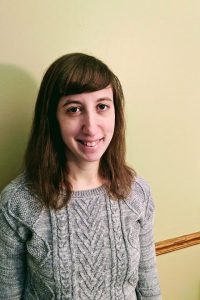Farah Mendlesohn: Match the Work to the Student
Farah Mendlesohn is the author and editor of numerous non-fiction works about science fiction literature, including the Hugo award winning Cambridge Companion to Science Fiction. Her recent works include The Intergalactic Playground (on genre fiction for children) and editing collected essays On Joanna Russ.
I have never taught fiction as part of a literature/literature criticism class, and I regard this as something of a privilege. While I have nothing against theory, or discussions of “quality” I have been liberated from all of this.
For eight years I taught science fiction (and some fantasy) as elements of history courses on the American urban environment, on Jewish contributions to American history and on American religious history. This allowed me to teach not the best but the most typical. In the past this meant I would happily show students the imagery from Star Wars and early pulps. while offering them urban stories from Heinlein, Asimov and Dick, We could have discussions about the theological positions of Harry Harrison, Arthur C. Clarke, and Judith Moffat. What we focused on then were very much the ideas at stake in the stories, using them as a barometer for intellectual and cultural history.
These days I teach creative writing, and at least for undergraduates, I’m aiming to teach them the conceits and conversations of the genres. Again, I’m more interested in showing them the typical, than the best, although as the course reading lists range through Heinlein, Russ, Chiang, Traviss, Gaiman and Miéville, there is an argument that I’m trying for both. These classes are much more technique oriented: what are the effects authors create (in terms of issues such as estrangement, world building etc, etc.). How do we learn to emulate them, and then (hopefully) stretch and subvert.
What holds together both these experiences is that I have very rarely taught undergraduates who are experienced readers of genre fiction. For three short years I taught a specialist sf course in creative writing, but even then, only a handful of students had read much sf. Mostly I am dealing with classes made up of the willing and curious, combined with those taking the course because, for one reason or the other, it’s the only thing available. In these contexts I’ve learned three things: first, always to begin with older material. The early stages in which sf writers learned to construct the tools of the genre is a useful place for students to learn those tools. Second, to keep an eye on what students interests are, because one can almost always match these up with an sf-nal text. Third, to keep alert for the sf-minded student loudly insisting they don’t like sf. One year that was the student who read marine biology in her spare time. This year it’s the student insisting she doesn’t “get” sf but who couldn’t understand why her class mates thought “All You Zombies” was confusing and proceeded to map out the story on paper.




…And?
Where’s the rest of the article?
Pingback:SF Signal: SF Tidbits for 3/21/11